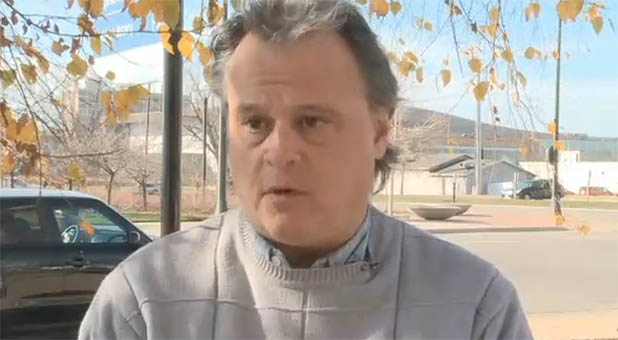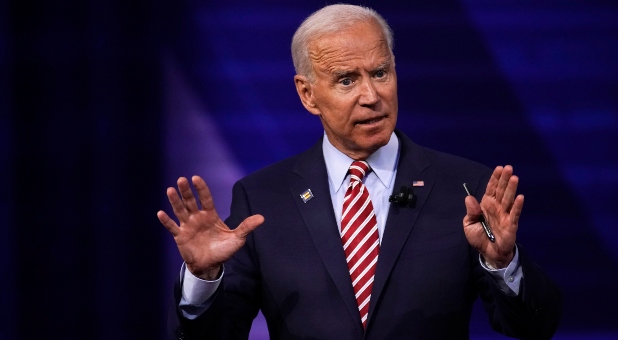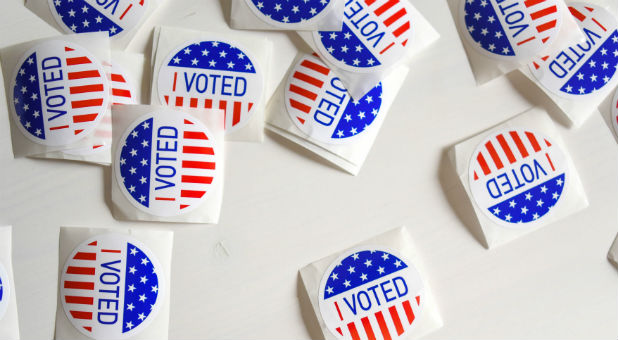You’ve likely seen the headlines, or perhaps a link to an online petition has come across your social media newsfeed, suggesting that the Electoral College could still elect Hillary Clinton as the next president of the United States.
It’s possible—a reason why we need to continue praying for the outcome we all voted for last week—but it’s also extremely unlikely. Here are the reasons why.
The Electoral College
The Constitution established the Electoral College, meaning there would have to be an amendment to rewrite it. How electors are selected is left up to the individual states, which has had some messy consequences in the past—the election of 1824 being perhaps the best example of that.
During a period of U.S. history known as “The Era of Good Feelings,” there was only one national political party, the Republicans—or, as historians call them today, the Democratic Republicans to disambiguate from today’s Republican Party—and in 1824, there were four of them running for president. This would be the election that would end any “good feelings” in Washington, D.C., and lead to the return to the two-party system.
The four candidates for president were:
- Andrew Jackson
- John Quincy Adams
- William H. Crawford
- Henry Clay
Andrew Jackson won a plurality of the popular vote, beating Adams by less than 45,000 votes. He also won a plurality of the electoral votes, beating Adams by 15. But he didn’t win a majority of the electoral votes, so the election was decided by the House of Representatives.
Adams won the presidency due to some backroom wheeling and dealing that permanently destroyed his party, leading to the creation of the Democratic and Whig parties. Surprisingly, no one thought for a moment the Electoral College should be disbanded.
Faithless Electors
Keen to prevent another “Election of 1824” from ever happening again, political parties have done everything they can to ensure their electors will cast their ballots the right way. In fact, in 29 states and the District of Columbia, it is illegal for an elector to cast his or her ballot for anyone other than the winner of the respective state’s popular vote.
Here are the states that do not have bound electors:
- Arizona (11 electoral votes)
- Arkansas (6 electoral votes)
- Delaware (3 electoral votes)
- Georgia (16 electoral votes)
- Idaho (4 electoral votes)
- Indiana (11 electoral votes)
- Iowa (6 electoral votes)
- Kansas (6 electoral votes)
- Kentucky (8 electoral votes)
- Louisiana (8 electoral votes)
- Missouri (10 electoral votes)
- New Hampshire (4 electoral votes)
- New Jersey (14 electoral votes)
- New York (29 electoral votes)
- North Dakota (3 electoral votes)
- Pennsylvania (20 electoral votes)
- Rhode Island (4 electoral votes)
- South Dakota (3 electoral votes)
- Texas (38 electoral votes)
- West Virginia (5 electoral votes)
In these remaining 21 states, “faithless electors” have popped up from time to time. But they are rare. In fact, in the 192 years since the election of 1824, there have only been a total of 35 “faithless” votes for president.
There hasn’t been a faithless elector since the election of 2004. But several electors have hinted they might this time around.
Clinton’s Narrow Pathway
The only way Hillary Clinton can become the 45th president of the United States is if 38 electors can be convinced to switch their votes to her, three more than the sum total in the past 192 years. Anything short of 270 electoral votes will not be enough for her to win the presidency.
So let’s put that into perspective. Of the 21 states that allow faithless electors, Trump won 15, constituting 155 electoral votes, more than enough to affect the outcome of the election. But 38 of them would be roughly one-fourth of the total number of electors who would be allowed to vote against him.
If faithless electors pull Trump below 270 electoral votes, but fail to give Clinton 270 electoral votes, the election goes to Congress to decide. The House of Representatives elects the next president, and the Senate elects the next vice president.
Republicans retain control of both chambers, but the voting is done “en bloc,” state by state, meaning each state delegation must cast a single vote. The GOP, however, has a majority of the state delegations in the House (31 R, 17 D, 1 Split, 1 TBD), and a plurality in the Senate (18 R, 17D, 14 Split, 1 TBD).
It is highly unlikely a vote in Congress wouldn’t follow party lines.
Liberals Trying Anyway
Despite the narrow window of opportunity, there has been considerable pressure put on electors to change their votes. And in some cases, that pressure has gone too far.
James Whitmer, an Iowa elector who has pledged to vote for Trump, said he has been threatened over his upcoming vote by those who want him to vote for Hillary Clinton or for someone else to prevent the president-elect from winning. He said the threats have been made over the phone and at his business’ Facebook page.
He said the ongoing protests and riots around the country have him fearful for his safety. But he’s not changing his mind about his vote:
I’ll be honest with you, Donald Trump was my last choice of Republicans running, and I certainly could vote for him or anyone else, and that would be perfectly legal, and that vote would register as an electoral vote. But I feel that would be throwing my vote away, and so I’m not going to do that.
I don’t agree with everything that he’s done, and they have brought up a lot of the despicable things that he has done, which I don’t agree with, but I believe his political views are more closely to mine, than anyone else. This country will survive. It has survived with Republican and Democrat Presidents in the past. And it will survive again.
Electors will cast their ballots at their respective state capitals on Dec. 19.
See an error in this article?
To contact us or to submit an article






















